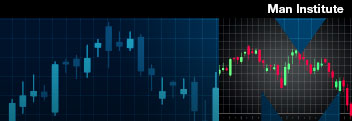Man Dynamic Allocation
Man Dynamic Allocation ('Man DNA') harnesses the best of Man Group in a single global multi-asset approach, actively allocating across equities, bonds and alternative1,2 strategies.
- Combines absolute return and long-only strategies to target ‘’Adjusted SONIA’’ + 4 % (gross of fees)3, with an expected annualised volatility of 6-8%
- Invests in bespoke strategies managed by specialist teams across Man Group
- Aims to achieve its return objectives through multiple return drivers: traditional risk premia, alternative risk premia, security selection alpha and asset allocation alpha
- Accesses alternative strategies2 across Man Group, including Man Alternative Risk Premia strategies, designed and managed using Man Group’s expertise developed over 30 years of absolute return investing
- Active tail hedging using in-house expertise seeks to mitigate downside
Furthermore, the Man DNA strategy benefits from specialist tail hedging which seeks to mitigate significant downside as well as risk management at multiple levels.
1. The strategy may allocate to certain strategies which may include, but not be limited to, those which focus on equities, fixed income, alternatives and risk premium strategies.
2. Alternatives may include exposure to certain alternative risk premium strategies.
3. ‘’Adjusted SONIA” refers to the Sterling Overnight Index Average rate (SONIA) administered by the Bank of England, to which a term adjustment (SONIA observed over a 3 month period and compounded in arrears daily during that period) and the additional "0.1193%" represents the industry fallback spread (reflecting the historical difference between to 3-month GBP LIBOR and SONIA) is applied.
























































You are now exiting our website
Please be aware that you are now exiting the Man Group website. Links to our social media pages are provided only as a reference and courtesy to our users. Man Group has no control over such pages, does not recommend or endorse any opinions or non-Man Group related information or content of such sites and makes no warranties as to their content. Man Group assumes no liability for non Man Group related information contained in social media pages. Please note that the social media sites may have different terms of use, privacy and/or security policy from Man Group.